
KOMA welcomes new CEO Roy Janssen
We are pleased to announce that Roy Janssen has officially joined KOMA as our new Chief Executive...
Explore the main advantages of natural refrigerants for a future-proof cooling system
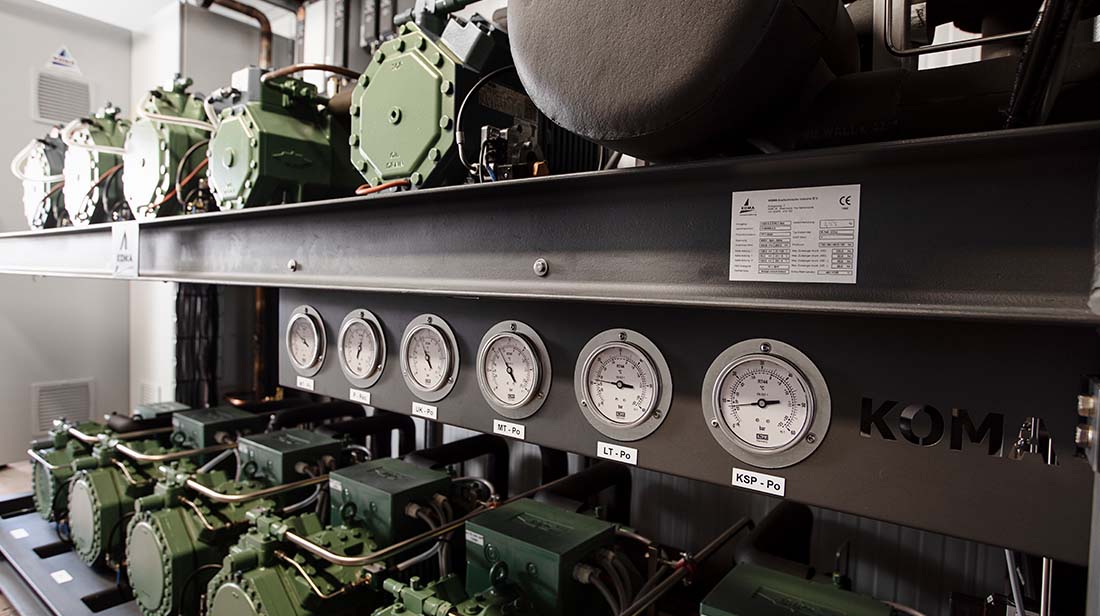
KOMA's own CO2 Booster Central System
Theoretical savings compared to Freon systems are expected to be 15-30% lower, depending on location.
Find out what we can do for youThe European Union requires the food industry to phase out F-gasses by 2030 and switch to natural refrigerants. To what extent is your machinery ready for the near future? What can we do to help you get there?
The GWP (Global Warming Potential) value indicates the extent to which a refrigerant contributes to the greenhouse effect. In other words: the higher the value, the greater the risk that a refrigerant negatively impacts our climate. Natural refrigerants degrade quickly, therefore the GWP value is 1. For other gases, it depends on the gas and the time frame the refrigerant is applied in the freezing/cooling process. The most commonly used gas R404A, for example, has a GWP value of 3922.
In short, the true question is not whether we need to change our way of working, but when. At KOMA, we strive for a sustainable future by promoting natural refrigerants. With our extensive knowledge of natural refrigerants, we are happy to help you find the solution for a future-proof installation.
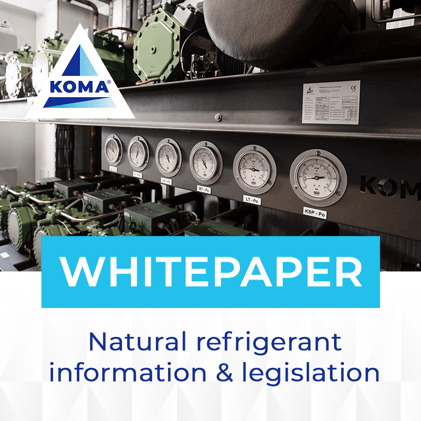
Learn more about CO2 and other natural refrigerants, the upcoming legislation and how it can help you future-proof your production process.
There are several organizational benefits to using natural refrigerants
First of all, natural refrigerants help spare the environment. Using them in your process makes the cooling system much more sustainable and future-proof.
Natural refrigerants use up less energy, and maintenance costs are considerably lower. Natural refrigerants are also lower in price compared to chemical refrigerants.
And last but not least: when your installation and choice of the natural refrigerant match, mandatory inspections are no longer needed, avoiding keeping those time-consuming logbooks.
KOMA creates custom made solutions
We adapt our approach to your specific needs to create the best final products.
With 85+ years of experience
in conditioning we have a lot of in-house knowledge and understanding of the bakery and food processing industry.
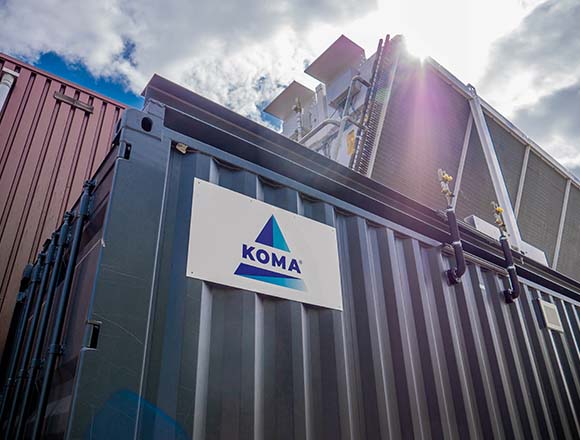
To make the switch to natural refrigerants, it's essential to know which refrigerant matches your current or future installations. Also, at KOMA we are able to carry out tests to guarantee product safety and monitor installations 24/7. This way, we can detect and correct errors long before the health of workers is at risk.
At KOMA, we can supply all installations for your refrigeration & conditioning needs. Let us help you find the best fit of natural refrigerants for your installation.

"Following a 2018 visit to two companies that use KOMA systems, including one with CO2 refrigeration, it became clear – relatively quickly – that a CO2 booster system was what we needed.”
Berthold Brinkert
Owner M+B Backwaren (Germany)
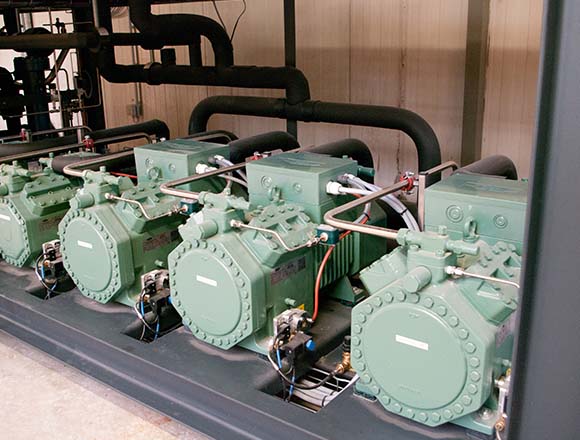
At KOMA, reaching sustainability through efficient and environmentally friendly processes is a central topic. Cooling technology, in particular, consumes a lot of energy and is one of the polluters of our environment.
We are happy to help you with customized solutions on natural refrigerants.
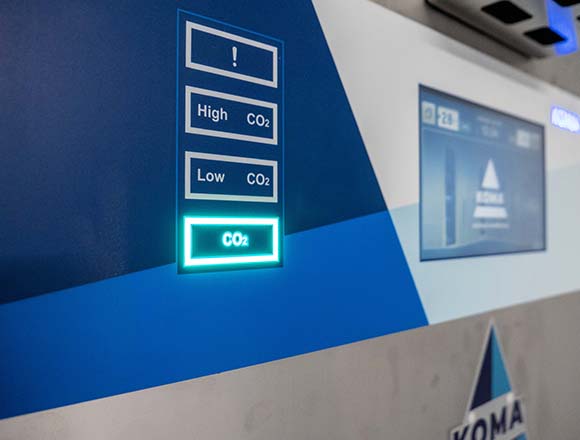
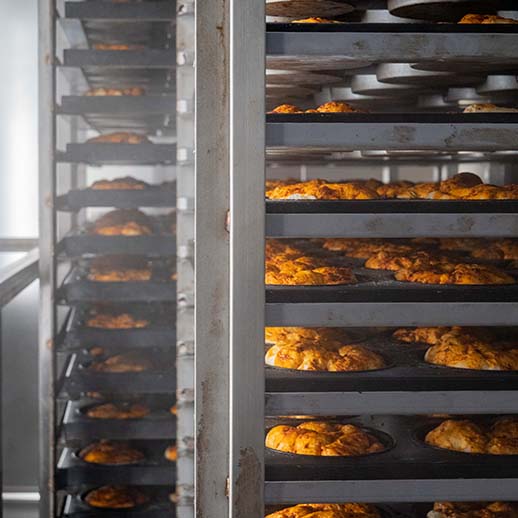
“CO2 was a new refrigerant for us, but actually, if you want to be future-proof, you can't decide any other way than to work with natural cold.”
Technical director Amarant Bakeries (The Netherlands)
“The choice suggested by KOMA, to build an all-CO2 plant, has certainly increased the initial investment, but we are convinced that in the medium to long term, we will have lower energy costs and greater attention to the environment.”
Owners Menchetti Panificio (Italy)
Read the storyThe choice of natural refrigerant depends on the type of machine, its purpose and application range, and environmental conditions (such as temperature).
Our industry specialists regularly share their knowledge on reaching consistent product quality levels, upscaling your production processes and the latest developments in the industry.

We are pleased to announce that Roy Janssen has officially joined KOMA as our new Chief Executive...
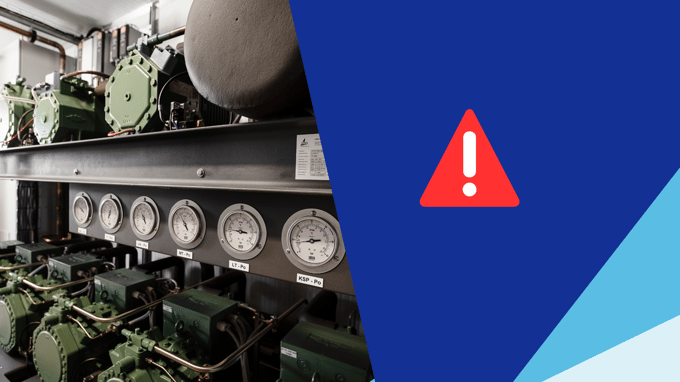
Strickter F-Gas rules: How will they affect your refrigeration and freezing installations? The...

And get personal advice on how to implement natural refrigerants in your production processes.